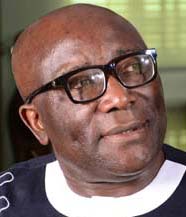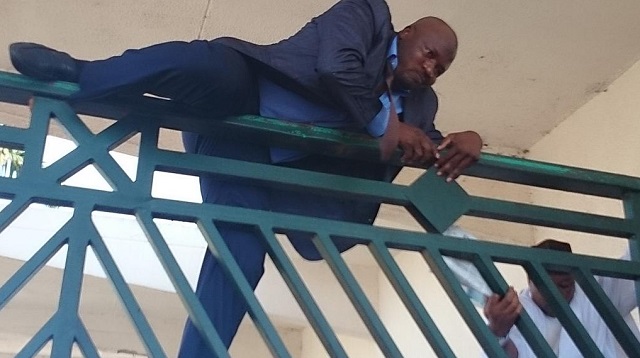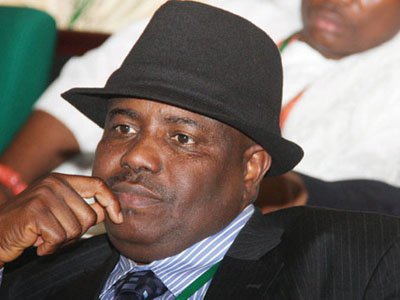On the eve of a critical general election, the national mood is best defined by a gigantic question mark. Not even in the years of the Civil War was the future of the Nigerian federation so riddled with speculative uncertainty. The critical distress in our bad situation is the embarrassment that among our political leadership, clear understanding of the basis of the incremental unraveling of the Nigerian state remains scanty.
Here is an opportunity then to enter some contentions on the matter. At the root of the present widespread sinking feeling among Nigerians is an incremental collapse of a credible national order in the political, social and economic realms. Let us proceed from this position.
Advertisement
We can define national order as a system of just arrangements in the wielding of power in a nation that guarantees peace, stability and reasonable equity. Inherent in that order are clearly recognized concepts of control and subordination among the echelons of national political authority. To prevail, every system of order requires a legitimate ultimate guarantor in whose custody national coercive power is vested. To endure, every national order requires an internal balance of power that discourages components from devouring each other or fatally compromising the apex authority. The practical application of the prevailing national order is what keeps a nation stable, governable and the citizens confident and secure.
Advertisement
In the colonial era, order was vested in the colonial authority. The lines of domination and subordination were clear and inherent in the hegemonic code of colonialism. Nonetheless, there was no doubt who was in charge. The guarantor of order and the repository of power was the colonial authority backed by the maxim gun of the imperial overlord. The social and economic correlates of this order are well documented.
In the immediate post-colonial setting, order was transferred to a new political leadership. The credo was the oneness of a diversified federation, one in which the uniqueness of the tripartite (and later quadripartite) components was recognized while their interdependence in a unified country was constitutionally guaranteed. So Nigerians were then Northerners, Easterners and Westerners or Mid-Westerners as the case then was.
Advertisement
The threat to this political order was either internal crisis within the component sub sovereign units or a challenge to the authority of the federal government by any of the component units. The sustaining belief was that a superordinate federal authority was needed to protect all from outsiders and prevent the regions from either gobbling each other up or upsetting the larger national edifice. However, there would seem to have been no credible force content in the internal security architecture of the period to enforce the imperatives of an emergent indigenous national order. Therefore, the national order that succeeded the colonial hegemony was tenuous and fragile.
Therefore, when political crisis led to the virtual implosion of the Nigerian West, the ability of the federal guarantor to ensure that order was maintained was put to test while its weakness was quickly exposed. The East through the Biafran misadventure challenged the concept of order that sustained post- colonial Nigeria and the edifice tottered and quickly crumbled. Therefore, although Biafra failed as a secessionist project, its emergence marked the end of Nigeria’s ancien regime and made the crafting of a new national order imperative and urgent.
Advertisement
The Military assumed the role of guarantor of national order from the ruins of the failed architecture of a nation wracked by multiple ancient convulsions. A military that had mismanaged the simple restoration of order by civilian politicians ended up disturbing the peace and eroding the fragile order.
Advertisement
The military then had the task of creating a new national order based on balkanization of the federation. Balkanization aimed to reduce the size and influence of the contending components and to re-locate the theatres of greed and ambition of competing elites. The re-invention of the Nigerian ideal by the military was the ideological basis for a new national order.
Advertisement
The central contradiction that bedeviled military rule in Nigeria was that a force that had quickened the disintegration of the nation through coups and counter coups also assumed the rule of restorer and guarantor of a new national order. Its catch phrases and rhetoric dripped in messianic effusions: “To keep Nigeria one…to give Nigerians a new sense of pride as black men/women’ etc. The staging of gatherings like FESTAC, the inauguration of ECOWAS etc. all fall into place as part of the effort to re-engineer and imbue Nigeria with a new sense of continental mission.
Advertisement
Ironically, the Nigerian military is credited with fighting and ending a civil war which it initiated. However, the emergence of a new national order was the direct dividend of this outcome. It was one whose central thesis was the geographical re-configuration of the nation in terms of internal balance of access to central and peripheral power. The new architecture of national order was intended to eliminate crises and instability or at least reduce them to containable scopes.
Deliberate policies in aid of equal opportunities through affirmative action policies- federal character, equality of states, zoning of political offices, federal character representation in schools and federal institutions and a proliferation of federal institutions as well as infrastructural integration- were pursued with considerable success.
The re-design of the architecture of national geography assisted the emergence of a new national order. Component units became smaller and weaker. Competitions and contests for political relevance and for resource appropriation were driven to more remote peripheral centres. New political and economic power centres were created that made challenging the mighty federal behemoth unattractive to small sectional political warlords. Hitherto inconsequential people acquired new importance as leaders of new states. Names that hardly made previous maps and geography textbooks became state capitals as people struggled to learn how to pronounce them.
By far the greatest legacy of the military in terms of guaranteeing a new national order was in the re-arrangement of the command structure of the institutions of coercive authority. The national army and police command structure were made to mimic the new political structure of multiple centres of authority. Troops from every part of the country now cohabited common barracks and could be deployed to any part of the federation in times of trouble. The days of deployment of the armed forces along ethnic or geo political lines are over.
Successive civilian administrations that interjected four decades of military rule inherited this architecture of national security: Federal and State Police commands, state SSS Directorates, new army divisional headquarters with mostly state-based brigades formations etc. These became integral to the security system of both the federal and state governments.
While this system of order persisted, the main cultural and social fault line of the nation- that between a Christian South and Muslim North- was carefully managed. There was a tacit understanding that national order is best guaranteed if we maintain a bi-polar balance of political power in which political power at the apex rotated between a Moslem North and a largely Christian South.
This military induced national order lasted 40 years (1970-2010). We are living in the throes of the terminal stages of that order. This is why we now feel a certain collective sense of vulnerability. Neither the political leadership nor its sustaining military infrastructure seems capable now of guaranteeing basic security let alone sustaining an enduring national order. The political structure is in disarray despite frequent posturing by politicians. The supporting military and security backbone seems fatally rattled and even overwhelmed by a concoction of national security challenges.
The battle tested and crisis tried Nigerian war machine that won a civil war at home, collaborated to keep the peace in sundry parts of the world and restored order in Liberia and Sierra Leone is being routed repeatedly and even chased around by rag tag bands of untrained terrorists. Slowly, significant slices of our national territory are being sliced off and occupied by terror gangs armed with nothing more than an endless thirst for blood. Even more damaging, armed pirate gangs are stealing off nearly as much of Nigeria’s crude oil as what is available to official channels.
In the most troubled parts of the nation, order is being replaced by mindless and bloody anarchy and in the troubled and occupied parts.
Enter the trembling state. A harassed and confused Nigerian state has lost the ability to guarantee the security of life and property. The value of human life has become a matter of statistics. ‘State of Emergency’ has since lost its gravity as the military ahs lost the aura and ability to frighten even small timetrouble makers or reassure patriotic law abiding people. Criminals and armed bandits of all hues have lost the fear of government guns which now happen to be smallerthen theirs. The official security forces have become increasingly ineffective in containing violence induced by non-state actors. The percentage of the national territory under government control shrinks almost daily. With it, our national sovereignty is shrinking.
A number of contradictory factors both inherent and extraneous to the new national order have brought us to this sad pass. The key issue is the increasing dysfunction of the state. The Nigerian state, like a few others around the world is failing itself and failing the people as well. Fortuitously, this decay coincides with a time in world history when the state system is threatened globally. Countries with weak institutions and effete political leadership are particularly vulnerable.
We can point at some of the factors that hastened the Nigerian version of this incremental state failure: weak and fickle institutions, wild inequality, deliberate enthronement of a national financial oligarchy through a dodgy privatization, waivers and concessions, rise of sectarian and ethno- regional militia forces and their by politicians, commercialization and privatisation of security, proliferation of small to large arms, the deployment of religion for political and economic advantage.
Reflecting on the role of religious fundamentalists (especially the Islamic variety) in the global assault on the nation state system, Henry Kissinger in his new book, World Order, opines: “Jihadists…tear at societies and dismantle states in quest of visions of global revolution based on fundamentalist version of their religion. The state itself… is in jeopardy, assaulted by ideologies rejecting its constraints as illegitimate and by terrorist militias that, in several countries, are stronger than the armed forces of the government.”
In the popular imagination, the state and government are one and the same. Previously, our national order was assured by a psychological reverence, even fear, of the state. The police and the military were the foremost manifestations of state power. Only governments issued people with guns and uniforms. In the neo-colonial state, these were all that were required to frighten people into obeying government and observing law and order. The fear of these guns and these uniforms deterred trouble makers from challenging the power of governments and to stomach the state’s frequent acts of impunity and injustice. In Nigeria, for as long as the state maintained this monopoly of uniforms and big guns, it could guarantee the military induced national order.
Today, we are in a different place. Militants of all hues now wear uniforms that are by far more intimidating than those of the official armed forces. Courtesy of an international explosion in the availability of all manner of arms from dismantled rogue regimes, militias of all conceivable persuasions now have arsenals that overwhelm and frighten official armed forces. The capacity of the state to prevail in armed confrontation with non-state actors has been in decline in places like Syria, Yemen, Iraq, Libya, Nigeria, Kenya, Somalia and Ukraine.
In some states, better armed militia have shot their way into national capitals, taken control of the apparatus of state and flogged the president and his cohorts while throwing open the gates of the Presidential mansion for the public to troop in and have a drink of cold beer and some choice cognac from the presidential bar!
The ideologies of the rampaging non -state gangs are mostly anarchic and fundamentalist in a rather decadent sense. Visions of utopia thrive in those places where the state has failed to provide the people with a basis for hope and a road map to a better life. Suicide bombings and other forms of martyrdom are informed by legitimate quests for alternative forms of personal fulfillment and salvation. In places where the state has shut the door on personal economic advancement and hope of personal fulfillment, the devil finds work in endless blood letting and apocalyptic creeds. Enter Boko Haram and similar terror gangs.
Confronted with this new reality, the question remains: how do we re-invent the state while encouraging the fullest democratic freedoms? The central imperative of the moment is that of negotiating the delicate balance between democracy and the authority of a strong state. Currently, we are pursuing formal democracy in the context of a weakened state.
Ironically, the Nigerian state is weak not just because it cannot buy enough big guns to shoot its internal enemies. I contend that Nigeria is weakening because the people who ought to be the bedrock of democracy are themselves impoverished and alienated from the democratic train. Nigeria is weakening also because non-state actors within the nation are becoming increasingly more powerful than the federal state, so much so that we are now allowing the pressure of these militias and sundry terror groups to dictate the direction of national leadership selection.
Government is ready to dialogue with terrorists but not with opposition political parties. These unregistered terror gangs a re even indirectly dictating who rules democratic Nigeria. If the Niger Delta militias become too strong, we allow them to produce or endorse a presidential candidate. If Boko Haram makes life more difficult, we mistake them for the Northern interest and then bow to the imperative of a northern president. Who knows which faction will next disturb the peace with big gunsand frighten us into choosing one of theirs as leader.
But the essence of democracy is a compact between the individual and the sovereign. The social contract is never between the sovereign and ethnic groups, armed gangs, sundry chiefdoms and religious entrepreneurs. While interest groups and civil society groups may be legitimate players in the political theatre of a free society, they cannot replace free individuals in the social contract. Incidentally, it is the social contract between free citizens and their mandated sovereign that constitutes the original essence of order in the nation state.
Ultimately, then, the urgent imperative that faces Nigeria is how to re-invent the decrepit infrastructure of state while building a credible democracy. This imperative has acquired Martin Luther King’s ‘fierce urgency of now’.
*Being the text of the address read by Dr. Amuta at the Book Signature event in respect of ‘Writing the Wrong’ .
Views expressed by contributors are strictly personal and not of TheCable.




